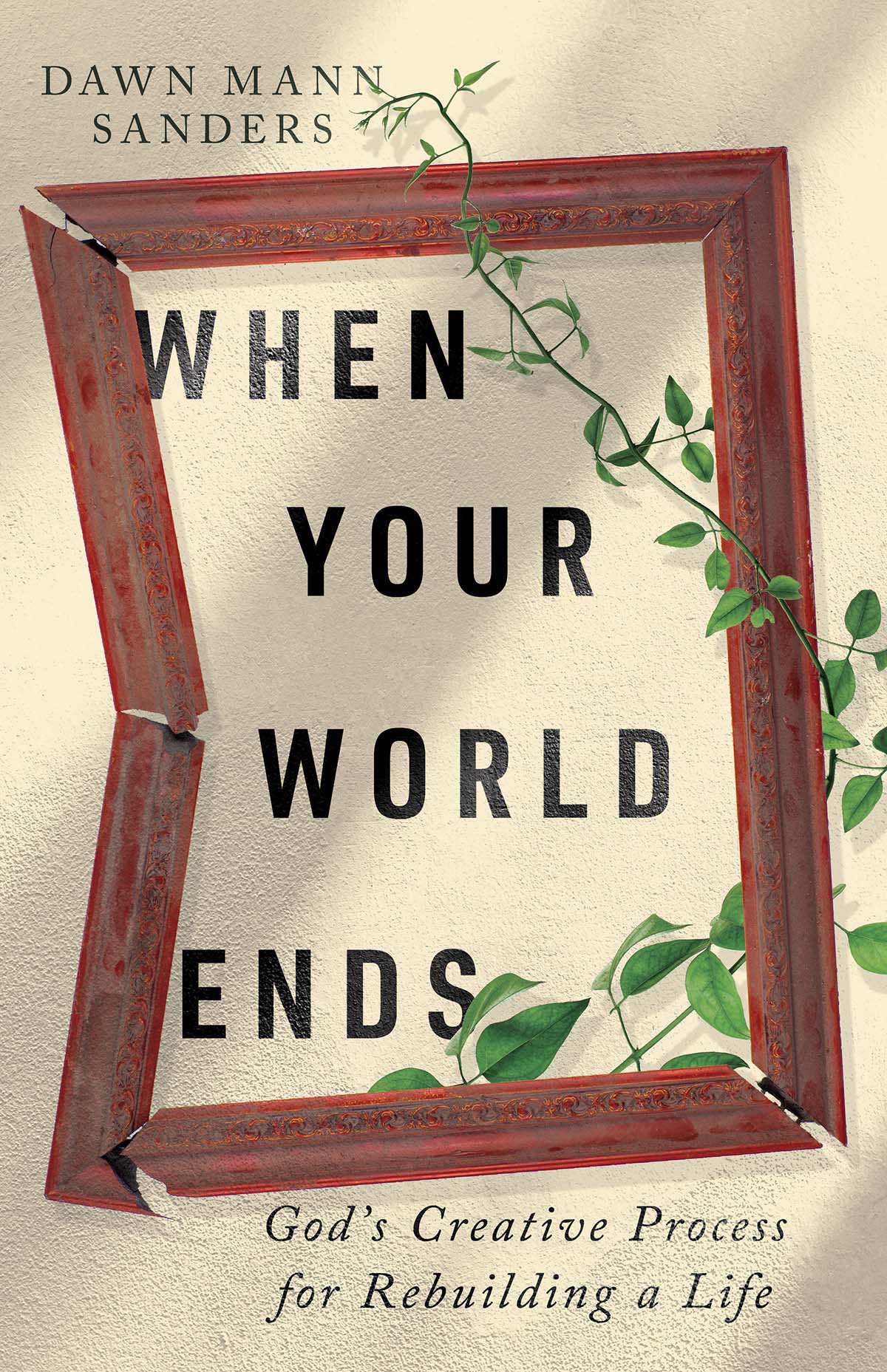A scene from the original Battlestar Galactica has stuck with me since childhood. In the scene, one of the Cylons, the perennial foes in the show, was flying his starship in Earth’s atmosphere when, suddenly, the starship crashed.
Now, I can’t remember why his starship crashed, but I do remember his understanding of what happened. As he put it, “I was flying when all of a sudden the ground came up and hit me.”
As far as this Cylon was concerned, the crash wasn’t his fault. There was nothing wrong with him or his spaceship. In other words, the cause of the crash was out of his control. He was simply minding his business—living his life—when something out of his control hit him. And he was helpless to do anything about it.
I was flying high—minding my own business, living my life to the fullest—when something out of my control hit me and knocked me for a loop.
That’s how I felt when Reggie died.
I was flying high—minding my own business, living my life to the fullest—when something out of my control hit me and knocked me for a loop. I crashed, felt helpless, and struggled to move forward.
If like the Cylon and me, you’ve experienced a catastrophic event, you may feel helpless too. You may feel like you were just living your life when something happened to you—something out of your control.
But you aren’t helpless.
Part 1 of How to Respond When Life Happens
Today, we begin a series walking through the Book of Ruth. The Book of Ruth begins with the verse:
Now it came to pass, in the days when the judges ruled, that there was a famine in the land. And a certain man of Bethlehem, Judah, went to dwell in the country of Moab, he and his wife and his two sons.
~ Ruth 1:1
Literally, that first phrase “Now it came to pass” means “it happened”. What is talked about later in the sentence, a famine, happened.
Now, the book of Ruth is in the middle of the Bible and the middle of the Old Testament, so in the middle of this bigger story, a famine—a catastrophic event—happened.
A catastrophic event may have happened in your life, but it doesn't have to be your whole story. Share on XA catastrophic event may have happened in your life too. It was big, destructive, and painful.
You may still be in pain, but if God keeps waking you up and if you are reading this article, God woke you up, the catastrophic event isn’t your whole story.
There’s more to your story. God has more in store for you.
Life Happened to Naomi and Ruth
Though the phrase occurs in the middle of the Bible and Old Testament stories, it appears at the beginning of the Book of Ruth. So, while there is more to come, it comes in the form of a new beginning for Naomi and Ruth, the two main characters of the book.
As with the Cylon and me, Naomi and Ruth were minding their own business—living their lives—when something out of their control happened forcing them to start over. The Bible gives no indication that either woman wanted to start over or given their druthers neither probably would have started over—if not for the catastrophic events that changed their lives forever.
Both women experienced multiple catastrophic events.
Yes, events plural. Both women experienced multiple catastrophic events. Some were simultaneous and some were consecutive, but each was catastrophic.
Both experienced catastrophic events, but only one felt helpless. The other didn’t and because of her, both were able to move forward in their respective stories.
That doesn’t always happen.
Life Happened to Cain
Take for instance Cain. The first time the Hebrew word translated “it came to pass” used in Ruth 1:1 occurs is with Cain, Adam and Eve’s son (Genesis 4:1-2).
Something happened to Cain (Genesis 4:3-5). Cain, a tiller of the ground, offered God some of the fruit he harvested. That is what Cain did. That isn’t what happened to him. What happened to Cain is God rejected his offering. The Hebrew word translated “respect” in this passage means “reject.”
And in the process of time it came to pass that Cain brought an offering of the fruit of the ground to the Lord. Abel also brought of the firstborn of his flock and of their fat. And the Lord respected Abel and his offering, but He did not respect Cain and his offering. And Cain was very angry, and his countenance fell. ~ Genesis 4:3-5
Let me be clear. God rejected Cain’s offering, not Cain. Not only that, God didn’t punish Cain as He did his parents either. Instead, God provided correction so that he could do better when the next opportunity came, and ultimately, receive the acceptance he so desperately wanted (v. 6-7).
God didn’t punish Cain as He did his parents either. Instead, God provided correction so that he could do better when the next opportunity came.
Then, something happened to Abel.
Rather than learn from God’s correction, Cain—acting in anger—killed his brother Abel.
Now, I’m sure receiving God’s rejection was devastating. I’m devastated when I realize I’ve missed the mark, but I’m sure most—if not all of us—will agree that violence is not the correct response to rejection.
Also, Cain obviously didn’t feel helpless. He took matters into his hands. He took action—just the wrong action.
As a result, he didn’t move forward, but instead, suffered a major setback (v. 11-13).
Life Happened to Job
Job, too, suffered major setbacks, but not due to anything he did (Job 1:1). No, Job’s setbacks were all due to various things happening to him—each an attack of the enemy. In a matter of moments, Job lost all his possessions and all his children.
But wait. There’s more.
When Job continued to worship the Lord rather than curse him, Satan was given free rein to attack his body (Job 2:3-6). Thus, Job lost his health too.
Talk about catastrophic events.
Job never wavered. He sought God. God responded and Job was blessed double for his trouble.
Yet, Job never wavered. Job went on to question God, but he never cursed God. Nor was Job punished for his questions. God’s response to Job’s questions was to address them.
God’s answers renewed Job’s conviction. Job wasn’t helpless. He sought God. God responded and Job was blessed double for his trouble. God didn’t just restore Job. He moved Job forward.
Life Happened to Me
That gives many people solace, but for a long time that wasn’t me. Truth be told, I struggled with Job’s situation. What I struggled with most about this passage is that all the devastation in Job’s life was permitted by God. Satan couldn’t have done it without God’s permission.
I didn’t understand why God would allow it. And that was where I was when Reggie died, not understanding how God could allow Satan to take both my children and Reggie within a span of eight months. It simply didn’t make sense then.
The way I saw it, Reggie and I were sold out for Jesus. I thought we were the kind of people God would want to raise godly children. So, I didn’t understand why God didn’t allow it.
Because it didn’t make sense, I felt helpless.
God allowed it because He has so much more for us in the form of a new beginning. Share on XI began to have questions. And as with Job, God answered them. I began to understand that God wouldn’t give the kind of devastating, catastrophic tests that Job, I, and possibly you went through to babes in Christ. They wouldn’t pass the test. So, they have to go to those who can handle them. God knew Job, I, and if you experienced such devastation, you could.
Thus, it wasn’t done to us to end us. God allowed it because like Job, God has so much more for us. Like Naomi and Ruth, it’s just taking the form of a new beginning.
With knowledge like this, I began to get my power back.
I was no longer helpless—and you don’t have to be either.
The “How to Respond When Life Happens” Series:
- Part 1 – How to Respond When Life Happens
- Part 2 – The Freedom to Do You
- Part 3 – The Purpose of Chaos
- Part 4 – The Difference Between Felt Needs and Real Needs
- Part 5 – Who’s Ruling You? An Article about Submission
- Part 6 – Famines in the Bible
- Part 7 – The Differences Between Famines, Fasts and Feasts
- Part 8 – Famine in the Community
- Part 9 – The Meaning of the Land as Israel’s Possession
- Part 10 – What’s Important about Naomi’s Opening Situation in the Book of Ruth?
- Part 11 – Three Locations in the Book of Ruth
- Part 12 – Traveling in the Book of Ruth vs. Now
- Part 13 – Naomi’s Family’s Names in the Book of Ruth







